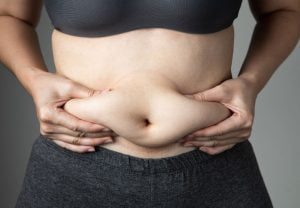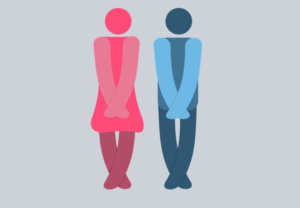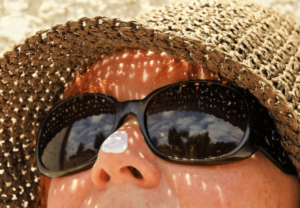Achieving a great night’s sleep can be revitalizing and renewing. However, for many people, a restful night’s sleep appears just out of reach.
Individuals of every age group around the world struggle with periodic to persistent insomnia.
This is a condition that disrupts your capability to go to sleep or remain asleep. You might be reluctant to turn to extreme medications to assist you to fall asleep if you are suffering from this sleep disruption.
Most of us have suffered through days of fatigue, headaches, and moodiness following a terrible night’s sleep. When lack of sleep becomes normal and you’re getting nowhere close to 7 to 9 hours of quality sleep each night, chronic illnesses start developing.
Due to unhealthy sleep patterns, physical, emotional, and long-term mental illnesses begin to take root. Among the most unexpected illness connected to inadequate sleep is obesity. Research shows that those who habitually sleep less than 6 hours, have on average, a higher BMI (body mass index) than those who get enough sleep. It’s also associated with overeating and lack of exercise because you’re too exhausted to move.
Disruptive Sleep Affects Our Hormones
The basis of this lies in the fact that when sleeping, our bodies release a variety of hormones connected with appetite suppression, metabolism, and glucose conversion. Without sufficient sleep, there’s an imbalance of these hormones as well as others.
The two hormones that are vital for reducing and stimulating appetite are leptin and ghrelin. An insufficient or excessive release may explain those yearnings for sugary treats to satisfy the demand for a rapid boost of energy.
The truth is, these types of snacks just offer a temporary solution that lasts a very short time. After that, your blood sugar levels crash leaving you even more tired.

Another instance of a hormone impacted directly by inadequate sleep is insulin. This is the hormone responsible for the way glucose is converted into energy and weight gain.
When insulin levels are not managed properly, our bodies process glucose more gradually, leading to a greater risk of type-2 diabetes.
When you suffer from insufficient sleep, the stress hormone cortisol is also released in excess. This leads to anxiety and mood changes.
Elevated levels of stress lead to raised cholesterol levels and blood pressure along with an increased danger of inflammation.
This adversely affects your immune system, leaving you prone to all types of ailments. These include the common cold, flu, microbial infections, and persistent diseases like heart disease and stroke.
Furthermore, mental disorders are caused by poor sleep. Anxiety, depression, and cognitive impairment, such as dementia and memory loss, are all signs of inadequate sleep.
Research studies have revealed that those who get less than 6 hours of sleep reported less confidence and friendliness, higher rates of anger, sadness, and anguish. It’s also been shown to negatively affect decision-making and awareness.
Bear in mind that the majority of these signs can be overcome once regular sleep patterns resume. The reality, however, is that many people affected by disruptive sleep neglect to inform their doctors. As a result, the situation goes undetected and without treatment for too long.
The good news is you can turn things around for the better even if you’ve suffered from poor sleep for years. Here are some efficient methods that can help improve your sleep naturally.
Sleep Hygiene
The first thing we’ll talk about is sleep hygiene. This has to do with environmental cues that should be taken into consideration if you’re not sleeping.
- Ditch the electronics at least an hour or two before bed
- Turn the thermostat down at night
- Use 100% cotton bedding for better breathability
- Keep the room pitch black and quiet
- Have a comfortable pillow and good mattress
- Set your alarm clock away from your bed
- Don’t watch tv in bed. Use the bedroom solely for intimacy and sleep
Check Out The Effects Of Sleep On Weight Gain
Reduce Caffeine Intake
That morning cup of coffee seems to be a staple beverage for many people. However, caffeine is not just in coffee. Caffeine can be hiding in the soft drinks you drink, the tea, and even some of the foods you eat.
While eliminating caffeine from your diet completely may not be possible, try to limit your consumption of caffeine and get your fix before lunch. Ingesting caffeine, even 6 hours before bedtime, can disrupt sleep.
Let’s not forget that caffeine is a diuretic and will cause you to get up and pee.
Exercise

Exercise helps you maintain healthy body weight and a better mental outlook. It’s also been shown that those who exercised were less sleepy during the day and slept better at night.
Starting on a new workout routine may leave you a little tired at first. However, regular exercise will give you more energy and help you fall asleep at bedtime.
This may have to do with the chemicals released by the body when you exercise. These endorphins provide many beneficial benefits, and improved sleep is one of them.
Meditate
Meditation has a restorative effect on the brain and is a great stress reducer. It can help to quiet an overactive mind and give you the ability to cope with difficult life challenges.
Meditation is also great for insomnia. A Harvard study found that mindful meditation helped combat insomnia. It invokes a relaxation response in those who participate helping them relax enough to fall asleep quickly and stay asleep through the night.
If you’re unfamiliar with how to meditate there are numerous guided audio programs that you can find online.
Regular Sleep Schedule

Going to sleep at the same time every day, even on weekends is a must. This helps your body follow a natural circadian rhythm which we need in order to sleep well at night.
Ignore The Snooze Button
In the morning, try to resist the urge to hit the snooze button. Instead, train yourself to get up at the same time each day. If you have no reason to get up until 7:00, then don’t set your alarm for 6:30. Save yourself the 30 minutes of interrupted sleep and set it for the correct time and get up the first time it rings.
Avoid Long Naps
If you need a little energy boost in the afternoon, napping may not be a bad idea. Just be sure to limit your nap time between fifteen to thirty minutes. Napping can throw off your schedule for sleeping at night because you’re simply not tired enough to fall asleep. So if you can avoid it, stay awake during the day.
Limit Alcohol Intake
Drinking alcohol around bedtime may cause you to fall asleep, but it will hurt the quality of your sleep and you won’t wake up as well-rested.
Resist Nighttime Eating
Avoid eating too close to bedtime because that can stimulate your digestion and disrupt sleep. Eat your last big meal a few hours before bedtime and especially limit overly spicy foods.
And while many of us eat to sustain a healthy diet, do we choose foods with the aim of enhancing our sleep? It may surprise you to know that there are certain foods that can provoke a sedative-like hormonal action that soothes the nerves.
Here’s a list of foods that are proven to aid sleep.
Tea

This may not be food, but chamomile tea is widely known as a natural sleep remedy. The antioxidant, apigenin, may be responsible for its calming effects on the brain and body.
Drinking a warm cup of non-caffeinated tea before bed may be all you need to help you fall into a deep, restful sleep.
Honey
Honey helps you sleep as it contains glucose. It reduces the degree of orexin, which is a neurotransmitter that elevates your state of alertness.
One teaspoon taken before bed is likewise shown to help replenish our liver with glycogen. Basically, the fuel we require to make it during the night without any food.
Eggs
Eggs are a good source of tryptophan. The body uses tryptophan to help produce melatonin and serotonin. Melatonin helps regulate the sleep-wake cycle, and serotonin helps to control appetite, mood, pain, and sleep. Consider a cup of chamomile tea with honey and a hard-boiled egg to get your sweet dreams started.
Figs
Figs contain a great deal of magnesium. This is a mineral that assists people to get better sleep and increased sleep time. This is primarily due to the high fiber content which helps keep to keep you full and suppress late-night cravings.
Sweet potatoes

This is among the best foods to consume before bedtime. This complex carb fills you up and has loads of potassium, which happens to be a muscle relaxer.
Turkey is another fantastic food to eat prior to bed because it has high quantities of protein and tryptophan. Both of which might lead to sleepiness.
Eating small amounts of protein before bed is connected to sleeping better, consisting of fewer wakeful episodes during the night.
Final Thoughts
Now you have an arsenal of information that should help you fall asleep faster at night. While some foods may help with sleep in general, they are less likely to be effective if you have poor sleep hygiene.
Remember, finding what works well for you may take some experimentation. So, if you don’t get it right the first night or two don’t give up.
It may take you several weeks, but it’ll be worth it once you start feeling the positive effects a good night’s sleep can have on your health.
Soon enough, you’ll start going to bed when you’re tired and you’ll be able to wake up feeling fresh and relaxed.










